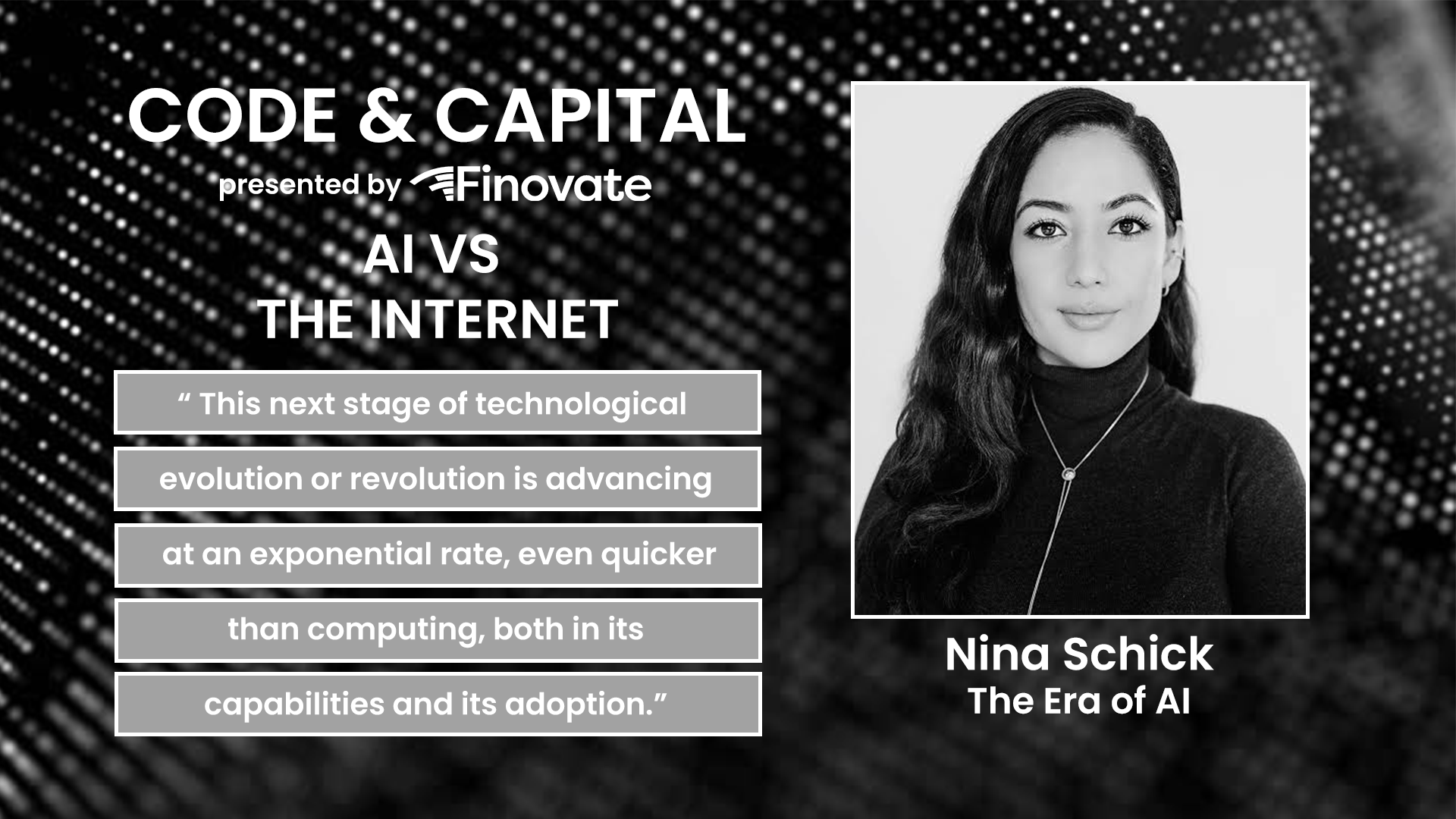Description
Code & Capital explores with Nina Schick, Author, Entrepreneur, Speaker on Global Authority on AI, at Finovate Europe the use cases for generative AI in banking; the growth and future of conversational AI; potential use cases for augmented reality and virtual reality; the metaverse in banking. And the very new threat posed by deep fakes.
Table Of Contents
In what ways might AI fundamentally reshape industries and economies compared to the transformative impact of the internet?
How does the transformative power of AI in automating tasks and decision-making compared to the democratising effects of the internet in terms of information access and communication?
Will the ethical and societal implications of AI surpass those of the internet, particularly in areas such as privacy, bias, and job displacement?
To what extent can AI contribute to solving global challenges, such as climate change, healthcare, and poverty, surpassing the internet's role in addressing societal issues?
How will the integration of AI into various aspects of daily life, including healthcare, education, and transportation, reshape human experiences compared to the internet's impact on communication and information-sharing?
0
Your cart



